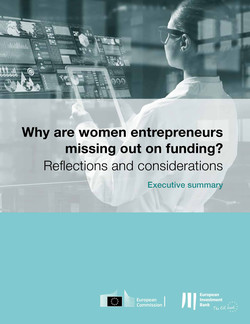Читать книгу Why are women entrepreneurs missing out on funding - Executive Summary - Surya Fackelmann - Страница 6
На сайте Литреса книга снята с продажи.
An overview of venture capital investment into women-led companies2
ОглавлениеOur approach is to gain a sound market overview of the funding landscape for women-driven companies and to embed this in a qualitative analysis of access-to-funding conditions for this constituency. We also analyse the state of play of women in the investor community and the role of female investors as a potential key driver to mobilise more capital for women-driven companies.
Specifically, this report collates the latest research on venture capital (VC) funding from the perspective of women-led start-ups in the 28 Member States of the EU. It performs a comparative breakdown of investment activity in the US and Israel to contextualise emergent cross-country and regional barriers to finance in the EU. The period of study spans a decade. We provide an assessment of the challenges to securing external funding from institutional investors encountered by women-led companies across industry and sector, using quantitative and qualitative analyses of the VC financing landscape, based on criteria such as company size, funding stage, and transaction type. The findings are supported by interviews with market participants in the European venture investment scene to identify potential solutions to the funding gap between men- and women-led companies, both public and private.
Glossary: Venture capital funding is defined as equity investments in start-up companies from an outside source. Investment does not necessarily have to be from an institutional investor. It can be sourced from individual angel investors, angel groups, seed funds, VC firms, corporate venture firms, and corporate investors. Investments received as part of an accelerator programme are excluded, but further financing is included if the accelerator continues to invest in follow-on rounds.
Despite significant structural disparities, we find substantial evidence in support of an optimistic outlook for women entrepreneurs in all three territories, and notably in Europe. Overall, the data suggest that the investment climate for women entrepreneurs in the EU is slowly improving. However, differences in the overall proportions still exist; that is, women-led start-ups are not funded on an equivalent basis to men-led start-ups, owing to structural inequalities3 in the population of entrepreneurs and investors as well as persistent biases.
